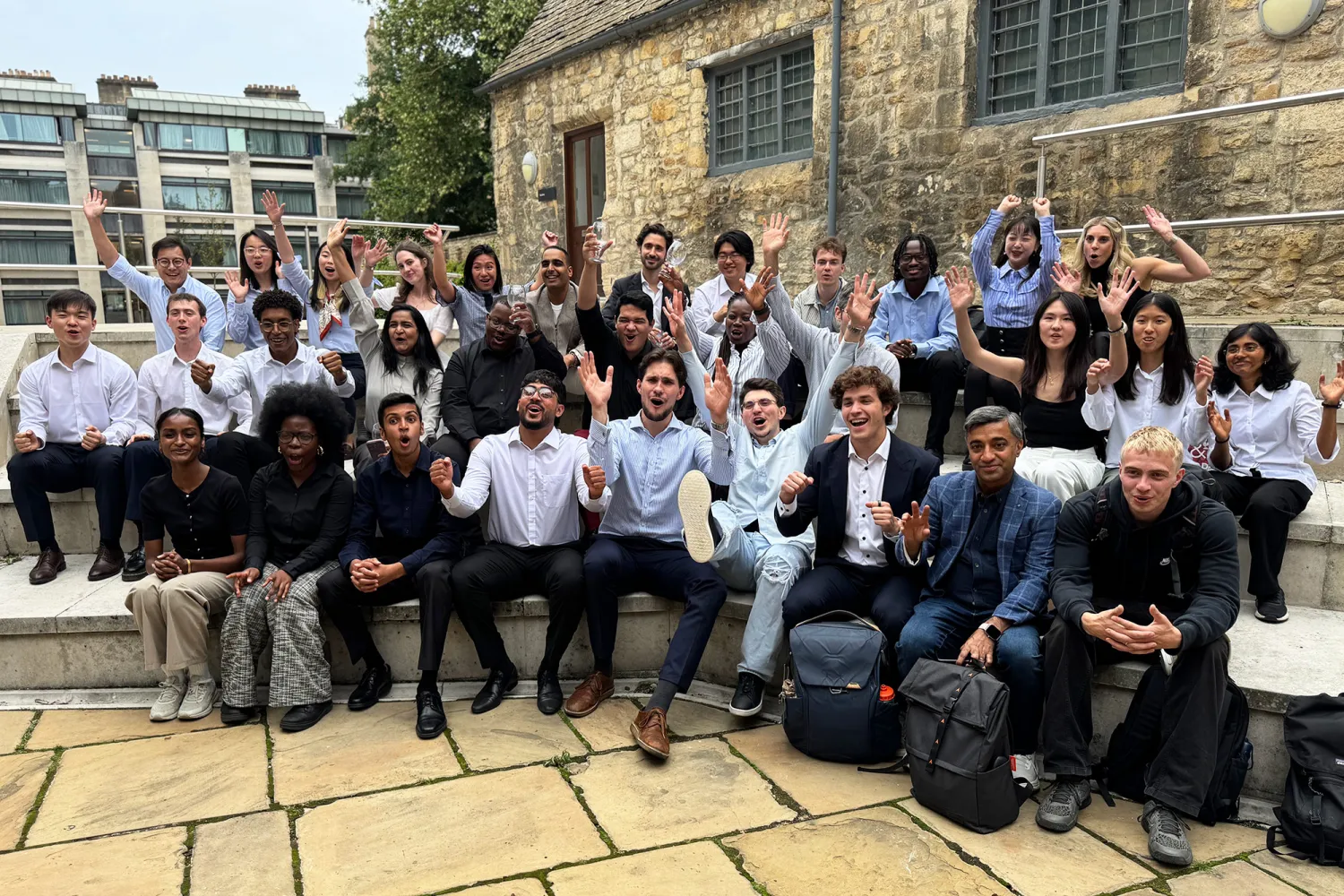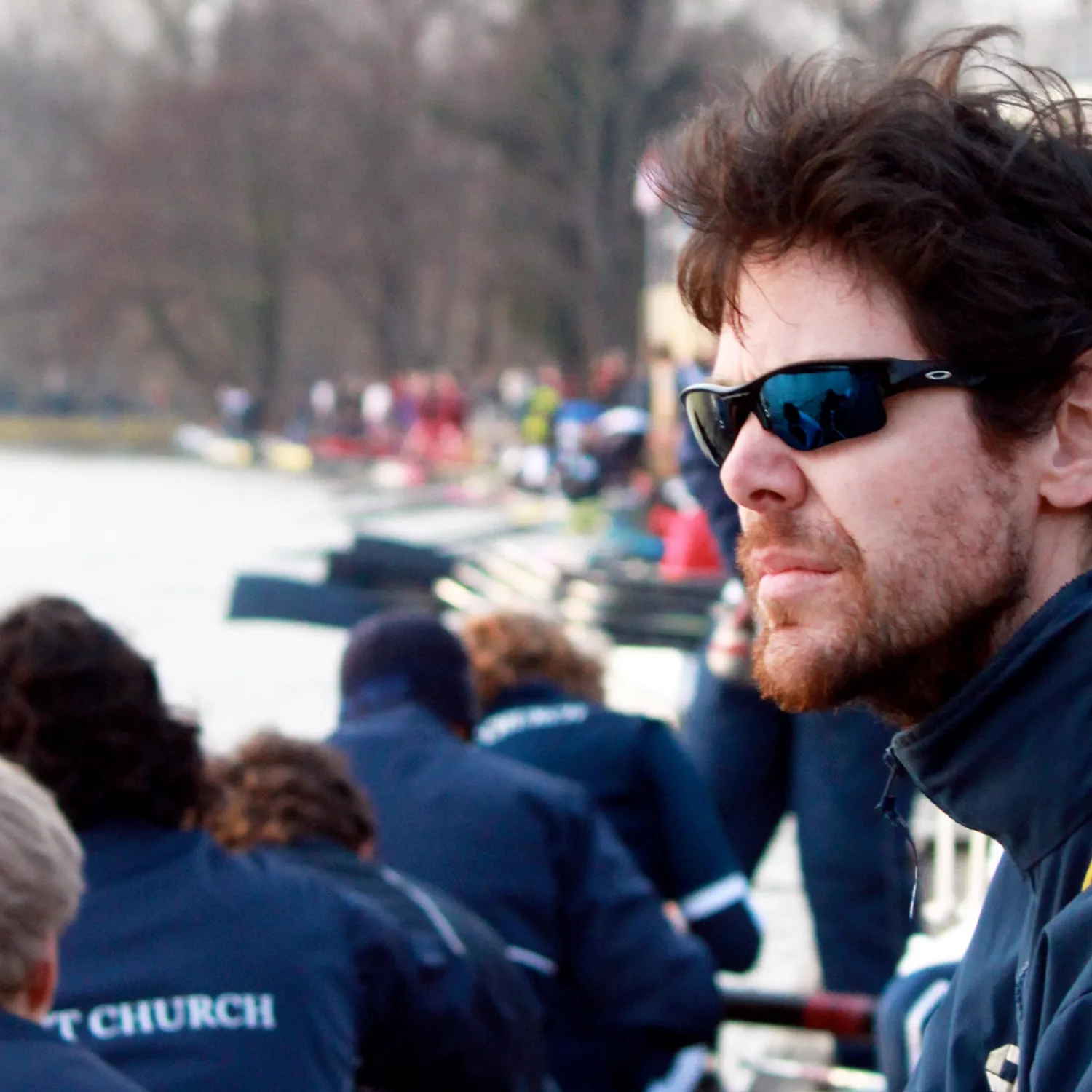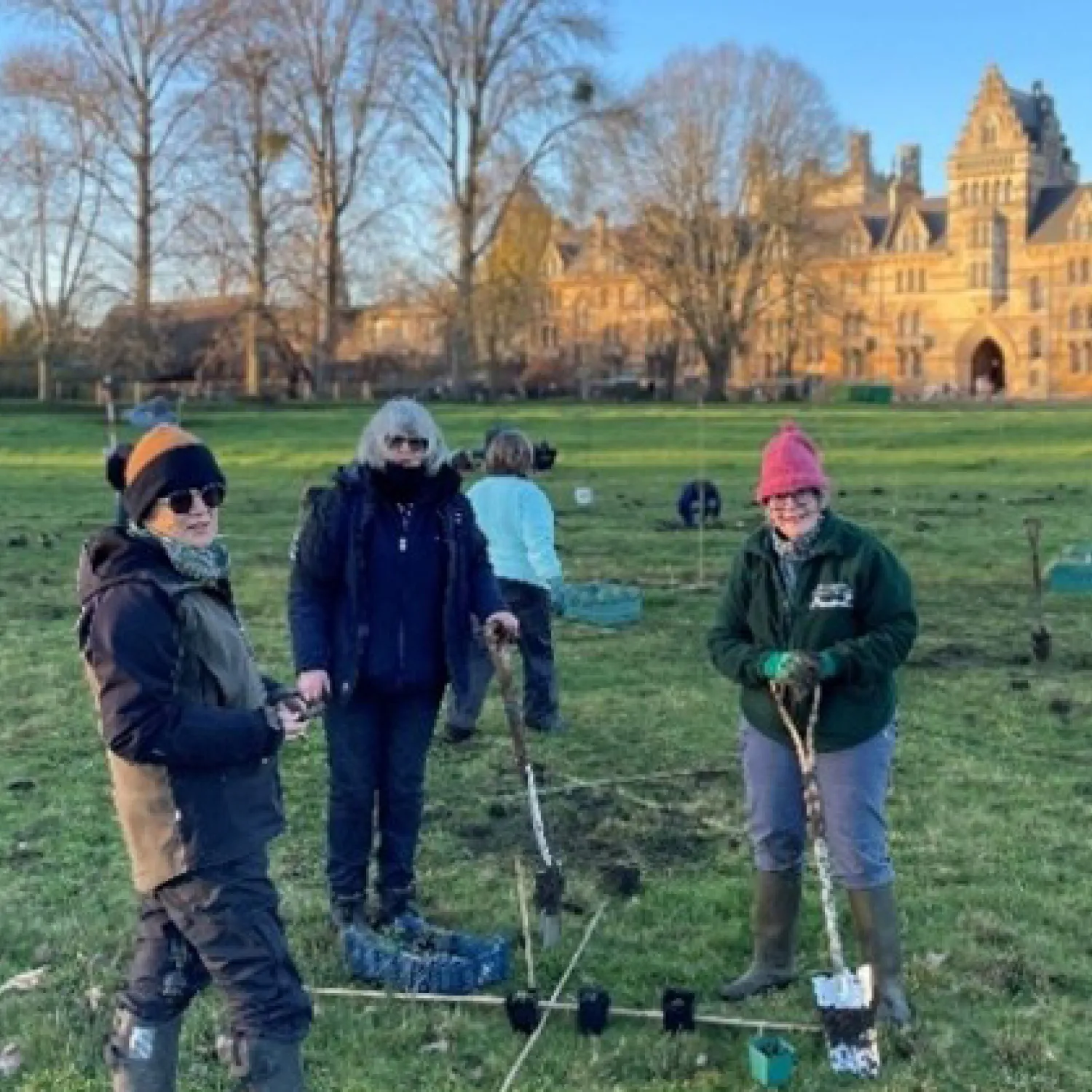Breadcrumb
Oxford’s student entrepreneurs make their final pitch
Yesterday evening ten teams of student entrepreneurs from across the University of Oxford came to Christ Church, each making a pitch to win a £10,000 prize for their groundbreaking business ideas. The Demo Day event reflected the work the young innovators have done as part of this year’s StEP Ignite initiative – the University’s flagship student entrepreneurship programme.
StEP Ignite 2025 has been hosted and co-run with Oxford Edge, a new centre for Oxford’s student entrepreneurs launched by Christ Church earlier this year. Open to all University of Oxford students, StEP brings together ambitious young innovators and offers them the chance either to develop their own ideas into a viable venture or to launch an initiative using existing Oxford intellectual property. Participants are given the tools, expert mentorship and work in a team of their peers to make these ambitions a reality.
StEP Ignite 2025’s core programme runs from 30 June and had a celebratory showcase yesterday with Demo Day. The event saw a bustling Christ Church lecture theatre packed with all of this year’s StEP participants, who in ten teams pitched their unique ideas to a panel of enthusiastic judges from across the University and greater Oxford innovation ecosystem. Sitting on the expert panel were the Chief Operating Officer at Oxford University Innovation (OUI) Dr Jaci Barnett, the Head of Innovation at the Africa Oxford Initiative Dr Watu Wamae, Head of EnSpire Oxford Dora Handrea, and Chief Operating Officer of Blenheim Chalcot Jasper Joyce.
Demo Day 2025 kicked off with a welcome from the leads of this year’s StEP Ignite programme – Dr Irwin Zaid, Director of Oxford Edge, and Catherine Spence, Head of the Oxford University Incubator at OUI. Speaking of what was to come, Spence remarked on how truly impressive it was that business proposals with so much promise could be prepared in the space of just four weeks. ‘We are immensely proud,’ she said.
First up was the team from Medhesion. They began by detailing the problem their product endeavours to solve. As they explained, when a person undergoes surgery, complications can arise, including during the recovery stage. In the case of abdominal and pelvic surgery, one serious potential complication is the formation of adhesions – bands of scar tissue that can cause organs and other tissues to stick together, sometimes resulting in life-threatening bowel obstructions or even infertility in women. Such complications affect millions of patients across the globe every year, resulting in patient suffering, hospital readmissions and increased waiting times, as well as considerable costs to health services such as the UK’s NHS.
This is where Medhesion comes in. ‘We have an engineered molecule that is injected into the abdomen during surgery,’ the team explained. That molecule, as peer-reviewed research has shown, has nearly 100% efficacy in preventing surgical adhesions and does so while avoiding complications that often result from alternative anti-adhesion measures such as the use of surgical mesh – a remarkable result celebrated in the journal Science. The Medhesion team outlined the progress already made in securing patents preparing the drug for market, set out how they would use the £10,000 prize were they to win, and introduced their experienced and talented team. The inspiring pitch set the tone for the rest of the Demo Day competition.
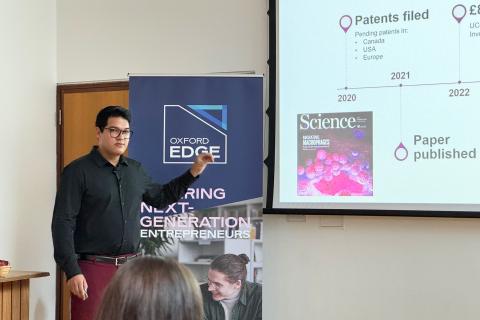
A second team of young innovators presented Fairie – an application for phones and tablets that harnesses AI to improve home-based care. As they pointed out, caregivers can sometimes miss instructions from those they care for or from their families, and they can sometimes forget what their clients need, occasionally resulting in harm (for instance, in the case of missed medication). These issues often arise due to poor communication between caregivers and their employer families, particularly when there is a language barrier. Fairie’s AI offers a solution to this problem, providing a task schedule, alerts and recommendations, translation services, and a care log delivering tailored healthcare insights. Through facilitating better communication between caregivers and the families who employ them, the app improves the quality of the care provided.
The next pitch was for Entangled – a company stemming from cutting-edge University of Oxford research into quantum computing. As quantum computers become more sophisticated and carry more information, a greater share of their power is devoted to fixing the errors that arise during information transfer, slowing processing considerably. But with the software developed by Entangled, the broken quantum connections can be fixed. ‘With Entangled’, the team declared, ‘your quantum computers become twice as fast.’ With the potential to revolutionise healthcare and drug development, market monitoring, and many other fields that are rapidly adopting quantum computing, the patented software – the efficacy of which has been evidenced in peer-reviewed research – has already caught the eye of multinational companies.
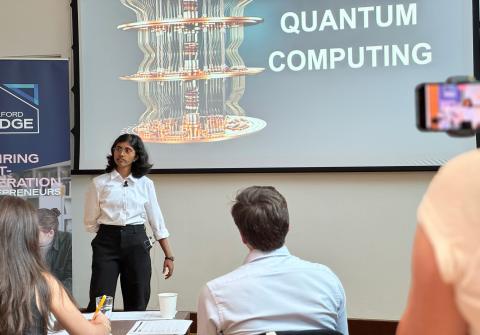
There was a dazzling array of fascinating business proposals on display last night. The Brikkworld team set out their ambition to create the world’s first regulated platform for exchanging equity in real estate that cuts out the need for complex legal processes, giving empty nesters the option to free up equity in their homes, enabling divorcees to secure funds for securing their next homes, and helping young people onto the housing ladder. The SMART-DBS team showcased an effective technological solution to drug-resistant epilepsy in children – a wireless deep-brain stimulation (DBS) device supported by software that allows it to adapt to the wearer’s brain. The Juliet Biosciences team presented their work on a therapy to help with diseases commonly associated with ageing.
The seventh team was Lenio, an AI-powered app for the self-assessment of racket injuries and personalised rehabilitation. Also drawing on AI, the Mello team presented their short-form news app tailored to Gen-Z and designed to help prevent the spread of misinformation. Then came Autotone: a digital pedalboard that enables amateur guitarists to apply the effects heard in any song without spending large sums on the traditional physical equivalent.
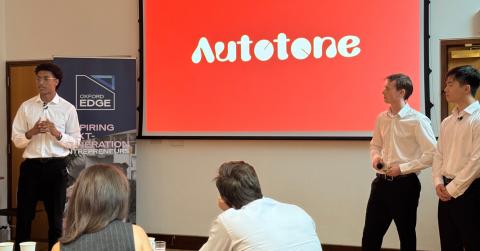
A last proposal came from the Voltaic team. Remarking on how the major power outages across the Iberian Peninsula on 28 April resulted from a spike in renewable energy supplies, they set out how their battery storage solution could allow factories to store surplus energy when the supply from renewables is plentiful and the price is low, and then to release that energy when the costs are high – or in the case of an outage. With Voltaic installed, energy-intensive businesses can save millions, have a more reliable energy supply, and rely less on fossil fuel-generated electricity.
Right to the end, we argued about who should get the prize – they really were all that fantastic.
Right to the end, we argued about who should get the prize – they really were all that fantastic.
The judges were astounded by the quality of the proposals on display at this year’s Demo Day and for the first time took the last-minute decision to select not just a winner, but two runners up that would each receive £5,000 for their ideas. Those runners up were Entangled and Autotone, and the winning team – chosen after much deliberation – was the one with which the event began: Medhesion.
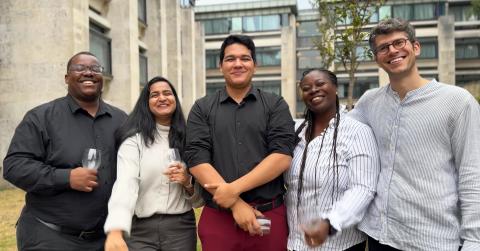
Dr Jaci Barnet spoke of the challenge the judges faced in choosing a winner: ‘We found it really difficult to distinguish between the presentations as they were all so brilliant.
‘Right to the end, we argued about who should get the prize: they really were all that fantastic. ’
In early 2025, its 500th anniversary year, Christ Church opened Oxford Edge: a new Centre for Entrepreneurship and Innovation in the heart of Oxford at 37 St Giles. This state-of-the-art facility exists to educate, inspire and empower the next generation of student entrepreneurs from across the entire University of Oxford, offering them the chance to develop their own ideas.
Other Christ Church news
